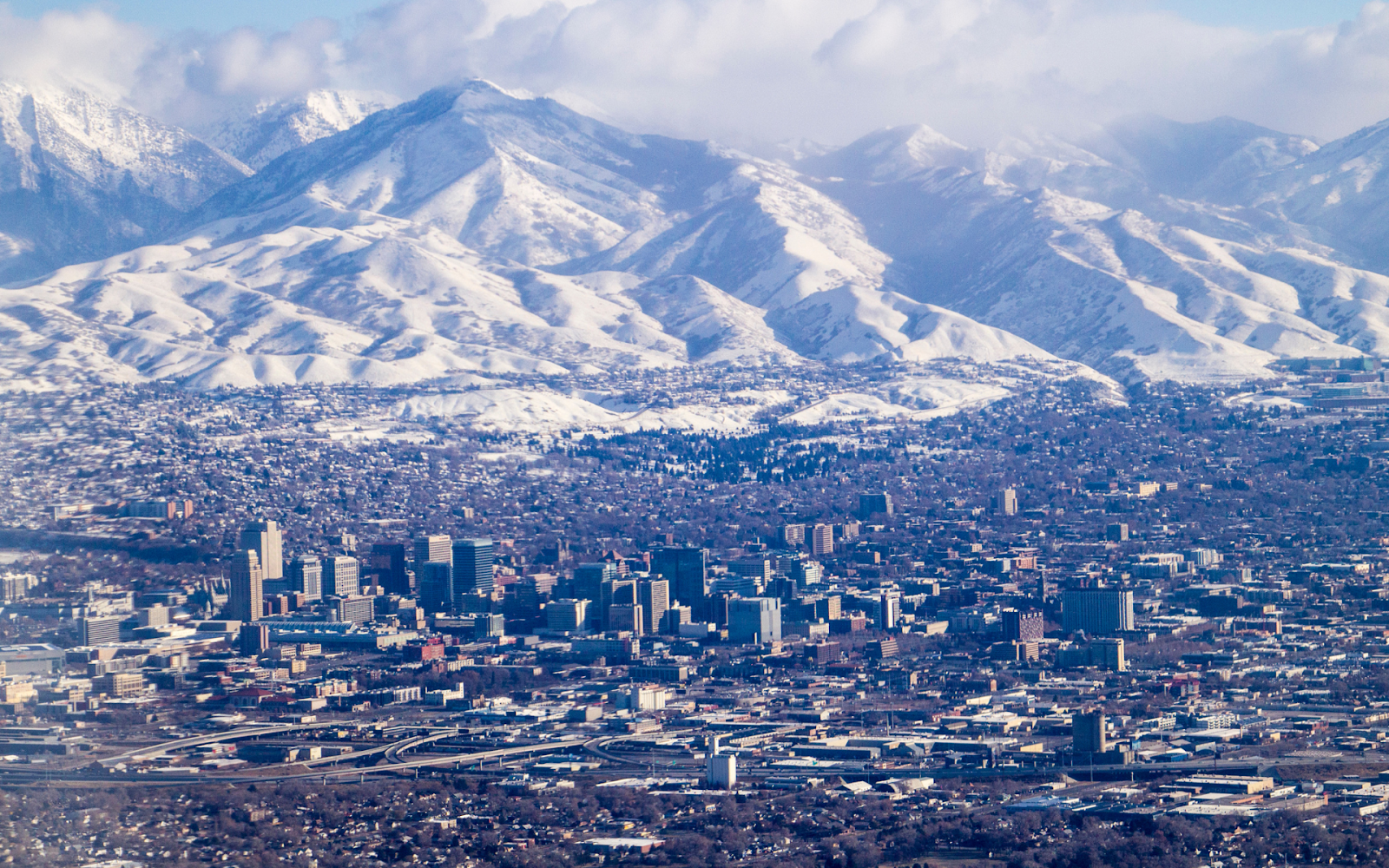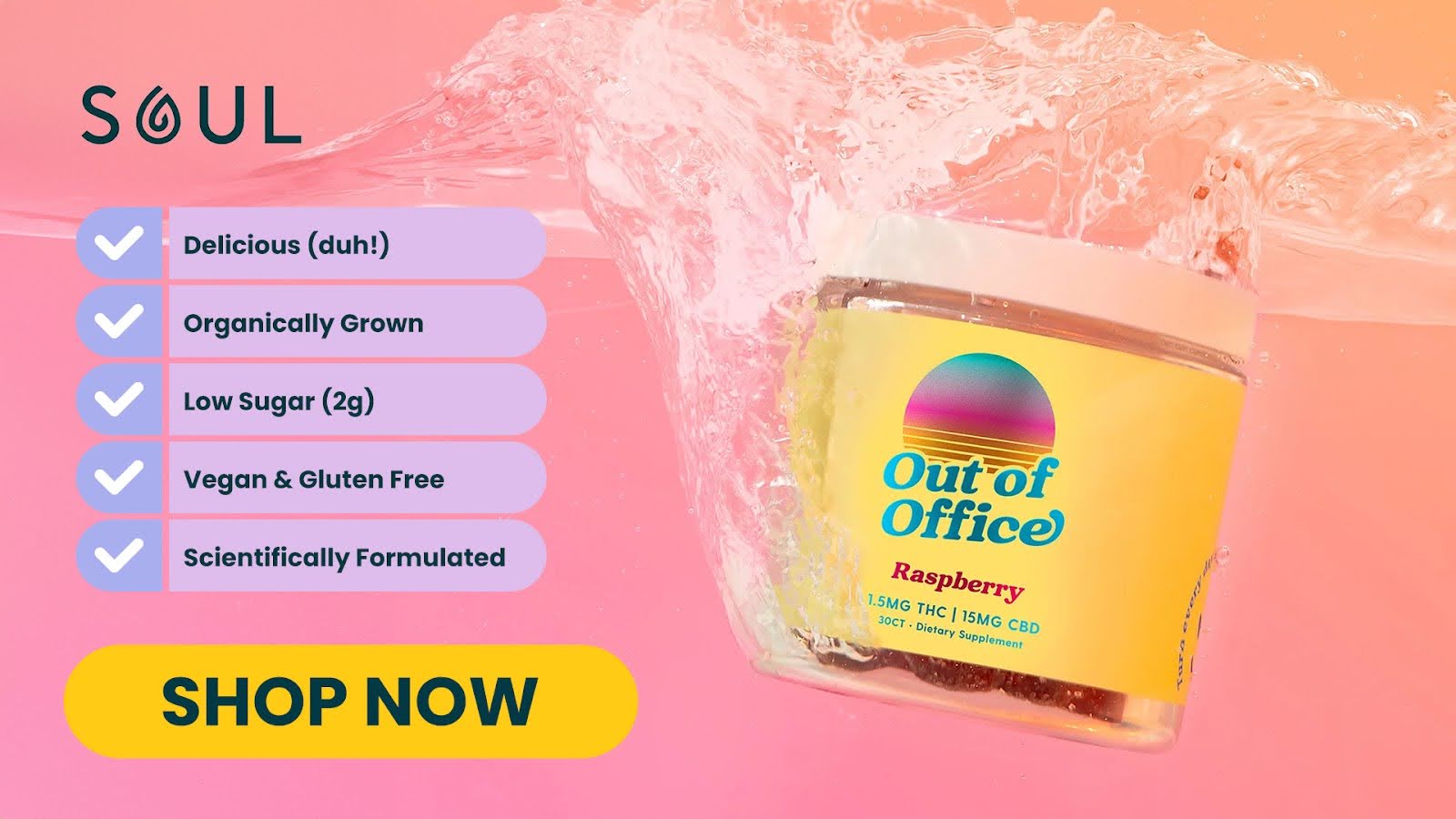
Key Takeaways:
- Strict Medical Program: Utah's Medical Cannabis Program is tightly regulated, allowing only cardholding patients with specific conditions to legally access THC products.
- No Recreational Use: Recreational use of THC remains illegal in Utah, with strict penalties for possession without a medical card.
- Legal Alternatives Available: Legal alternatives like CBD are available for those seeking therapeutic benefits without the psychoactive effects of THC.
Welcome to Soul, where we redefine relaxation and wellness through premium, lab-tested THC products designed to enhance your downtime. As pioneers in the cannabis industry, we're committed to providing you with safe, high-quality options that meet your lifestyle needs. In this article, we delve into the legal landscape of THC in Utah, exploring its complexities and what you need to know about the current state regulations, medical vs. recreational use, and the legal repercussions of THC possession. We'll also cover the available legal alternatives to THC in Utah, ensuring you stay informed and compliant while considering your wellness options. Join us as we navigate the intricacies of THC legislation in Utah, providing clarity and insights to guide your choices in the evolving world of cannabis.
Understanding The Difference Between Medical And Recreational Use
In Utah, the distinction between medical and recreational use of THC is critical. Recreational use of cannabis, including products containing THC, remains illegal under state law. However, medical use is permitted under strict regulations established by the Utah Medical Cannabis Act.
Medical cannabis in Utah is available to patients with qualifying conditions, such as HIV/AIDS, cancer, chronic pain, and others, who are properly registered in the state's medical cannabis program. These patients must obtain a medical cannabis card and are allowed to purchase THC products from state-licensed pharmacies.
Recreational users, on the other hand, have no legal avenue to access or consume THC products in Utah. This clear distinction aims to control the use of cannabis and ensure that it is used responsibly and for health-related reasons only.
Current Laws Governing THC In Utah
Here are the key points regarding the current laws that govern THC in Utah:
Medical Cannabis Program
Utah has established a Medical Cannabis Program specifically designed to allow patients with severe and qualifying medical conditions to legally use Hemp for therapeutic purposes. To participate, patients must be diagnosed by a qualified medical provider who is registered with the state to recommend cannabis. After obtaining a diagnosis, patients must apply for and receive a medical cannabis card, which must be renewed periodically.
Legal Purchase And Consumption
In Utah, medical cannabis can only be purchased from pharmacies that have been specifically licensed by the state to dispense cannabis. This regulation ensures that all medical cannabis products meet strict safety and quality standards. Patients with a valid medical cannabis card can possess and use cannabis in various non-smokable forms approved by the state, such as capsules, tablets, concentrated oils, liquid suspensions, topical preparations, and sublingual preparations. These forms are chosen to facilitate dosage control and minimize risks associated with smoking.
Restricted Forms
The state of Utah has placed restrictions on the consumption forms of medical cannabis; notably, smoking cannabis is completely prohibited. Instead, patients must use alternative consumption methods like vaporizing, which is considered safer. Furthermore, the use of medical cannabis must be confined to private spaces, as public consumption is illegal and can lead to penalties.
Limitations On Possession
Utah's laws impose strict limits on how much medical cannabis a patient can legally possess and purchase. These regulations are intended to prevent abuse and diversion of the product to the non-medical market. Typically, a patient is allowed to purchase up to a 30-day supply in one transaction, with a maximum limit of not exceeding a 90-day supply over any six-month period. These limits are monitored through state-run databases that track all purchases of medical cannabis.
Penalties For THC Possession In Utah
Navigating the legal landscape of THC possession in Utah can be complex and the consequences severe. Below, we outline the main penalties associated with different scenarios involving THC:
Possession Of Small Amounts
In Utah, the possession of small amounts of Hemp without a valid medical cannabis card is classified as a misdemeanor. This relatively minor offense can still lead to significant consequences, including fines of up to $1,000 and potential jail time of up to six months. Such penalties are designed to deter recreational use and ensure that cannabis use remains within the bounds of medical necessity.
Larger Quantities And Distribution
The possession of larger quantities of THC, or any involvement in its distribution without proper authorization, escalates to felony charges, which are significantly more serious. These offenses are vigorously prosecuted and can result in substantial penalties including long-term imprisonment and fines that can exceed several thousand dollars. This strict approach aims to curb illegal distribution networks and ensure that THC remains strictly regulated within the state's medical program.
Impact On Driving
Driving under the influence of THC is illegal in Utah and treated with the same severity as alcohol-related DUI offenses. Convictions for driving while under the influence of THC can lead to severe repercussions, including license suspension, hefty fines, and even jail time. These laws are enforced to enhance road safety and reduce accidents associated with impaired driving.
Other Consequences
Beyond the immediate legal penalties, being convicted of THC possession can have long-lasting effects on a person's life. It can negatively impact employment prospects, as many employers require clean drug tests. Additionally, such a conviction can affect educational opportunities, eligibility for scholarships, and access to public housing and other government assistance. The repercussions underscore the state's commitment to regulating THC use and ensuring it is aligned with public and health safety standards.
Impact Of Federal Laws On Utah's THC Regulations
Understanding the interplay between state and federal laws regarding THC can be critical for residents of Utah. Below we explore how federal regulations impact Utah's specific rules and the overarching challenges faced due to these legal discrepancies:
Controlled Substances Act
At the federal level, THC is classified as a Schedule I drug under the Controlled Substances Act. This classification implies that THC is considered to have a high potential for abuse and no accepted medical use, despite evidence to the contrary in states like Utah where medical use is permitted. The federal stance affects the general perception and regulation of THC, complicating the legal landscape even in states with progressive cannabis policies.
Conflict Between State And Federal Law
Despite the establishment of a medical cannabis program in Utah, the overarching federal prohibition of Hemp presents ongoing conflicts. This federal-state discrepancy affects crucial aspects of business operations in the cannabis industry, including access to banking services, insurance options, and eligibility for federal business loans or grants. The lack of federal recognition for state-legal cannabis activities creates operational and financial hurdles for businesses involved in this industry.
Federal Enforcement
Although federal authorities have largely adopted a policy of non-intervention in states that have legalized medical cannabis under certain conditions, the potential for federal enforcement actions still exists. This creates a layer of uncertainty for cannabis businesses and medical patients alike, as federal law enforcement could theoretically initiate raids or prosecutions based on federal statutes, leading to significant legal and financial consequences.
Implications For Travel And Transportation
The legal complexities extend into areas of travel and transportation. For instance, cannabis products legally purchased under Utah's medical cannabis program are still illegal to transport across state lines, according to federal law. This restriction applies even if traveling to another state where medical or recreational cannabis is legal. The federal regulation of interstate commerce and transportation of controlled substances strictly prohibits such activities, impacting the mobility and freedom of medical cannabis users.
Legal Alternatives To THC In Utah
For those in Utah seeking alternatives to THC due to legal restrictions or personal preference, there are several options available that are both legal and widely used. Below, we explore these alternatives and their applications:
CBD Products
In Utah, cannabidiol (CBD) derived from hemp is completely legal and can be found in a variety of forms including oils, creams, and edibles. CBD is valued for its potential health benefits without inducing the psychoactive effects associated with THC. This makes it a favored option for individuals seeking relief from conditions such as anxiety, pain, and inflammation, without experiencing a high. Moreover, CBD products must adhere to state and federal regulations requiring less than 0.3% THC content, ensuring their legality and safety for use.
Hemp Products
Beyond CBD, other hemp-derived products are also legally available in Utah. These include hemp fibers, which are used in the production of textiles and building materials, and hemp seeds and oils, which are incorporated into health foods, nutritional supplements, and skin care products. The versatility of hemp makes it a valuable agricultural commodity, and its cultivation is supported under both state and federal law, reflecting its economic and environmental benefits.
Pharmaceutical Alternatives
For those who need the therapeutic effects similar to THC, certain pharmaceutical alternatives are available through prescription. These FDA-approved drugs include synthetic cannabinoids like Dronabinol and Nabilone, which are used primarily to treat nausea and stimulate appetite in chemotherapy and AIDS patients. These medications provide controlled doses of cannabinoids, offering a legal, regulated alternative to medical cannabis for qualifying patients.
Kratom
Kratom is another alternative that is legal in Utah, often used by individuals seeking relief from pain, depression, or opioid withdrawal symptoms. However, kratom's legal status is subject to ongoing debate and regulatory review due to concerns about its safety and potential for abuse. Users and healthcare providers in Utah can access kratom, but are advised to exercise caution and consider the potential risks and benefits of its use.
Future Outlook On THC Legislation In Utah
As the landscape of cannabis legislation continues to evolve across the United States, Utah may see significant changes in its approach to THC regulation. Here’s what might be on the horizon for THC legislation in the state:
- Potential for Medical Expansion: There may be initiatives to expand the qualifying conditions under the medical cannabis program, potentially increasing access to THC for more patients.
- Legislative Changes: Given the evolving public opinion on cannabis, future legislative sessions may consider bills that relax some of the strictures around medical cannabis use or explore the decriminalization of small amounts of THC.
- Impact of National Trends: As more states legalize medical and recreational cannabis, Utah might face pressure to adapt its laws to keep up with national trends and economic opportunities.
- Regulatory Adjustments: Ongoing adjustments to regulations concerning the cultivation, distribution, and consumption of medical cannabis in Utah are likely as the state gains experience with its current program.
Final Thoughts
While THC remains largely illegal for recreational use in Utah, the state has established a regulated medical cannabis program for those with qualifying conditions. It's important for residents to understand the legal boundaries and penalties associated with unauthorized use of THC. Compliance with state laws is crucial to avoid legal repercussions.
For those seeking alternatives to THC, options such as CBD and other hemp-derived products provide legal avenues with varying health benefits. Looking ahead, Utahns should stay informed about legislative changes as the dialogue around cannabis continues to evolve both at the state and federal levels.
Read also:
Frequently Asked Questions About THC Legality In Utah
Is it legal to grow my own cannabis plants in Utah for medical use?
No, it is not legal for individuals to grow their own cannabis plants in Utah, even for medical use. All medical cannabis must be purchased from a state-licensed pharmacy.
Can I use a medical cannabis card from another state to purchase THC in Utah?
Utah does not recognize medical cannabis cards from other states. Visitors from other states must comply with Utah's cannabis laws and cannot legally purchase cannabis without a Utah medical cannabis card.
Are there any employment protections for medical cannabis users in Utah?
Utah law provides some employment protections for medical cannabis users, prohibiting discrimination based on a person’s status as a medical cannabis cardholder. However, employers can still enforce drug-free workplace policies and prohibit impairment on the job.
Can I travel with my prescribed THC products to another state?
No, it is illegal to transport cannabis across state lines, even if you are traveling to another state where medical cannabis is legal.
What should I do if I am stopped by police and I have legally purchased THC products in my possession?
If stopped by police, it is important to have your medical cannabis card and proof of purchase from a licensed pharmacy readily available to show that you are in legal possession of THC products.
How can I dispose of unwanted THC products legally in Utah?
Unwanted THC products should be returned to the dispensary where they were purchased for safe disposal. Do not attempt to dispose of them through regular trash or sewage systems.
Are THC-infused edibles legal in Utah?
THC-infused edibles are not permitted under Utah’s medical cannabis program. Patients may use gummies, lozenges, or similar products, but traditional edibles like cookies and brownies are not allowed.
What are the consequences if a minor is caught with THC in Utah?
Minors caught with THC face similar penalties to adults, which can include fines and juvenile detention. Parents or guardians may also face charges if found supplying THC to minors.
How often do I need to renew my medical cannabis card in Utah?
Medical cannabis cards in Utah must be renewed every six months, requiring a consultation with a qualified medical provider to maintain the prescription.
Is CBD considered the same as THC under Utah law?
No, CBD derived from hemp (containing less than 0.3% THC) is legal and not treated the same as THC under Utah law. It does not require a medical cannabis card for purchase or use.
Sources:
- Hansen, C., Alas, H., & Davis Jr., E. (2021, June 30). Where Is Marijuana Legal? A Guide to Hemp Legalization. US News & World Report. https://www.usnews.com/news/best-states/articles/where-is-Marijuana-legal-a-guide-to-Hemp-legalization
- Washington DC Hemp Laws | WashingtonDCCannabis.org. (n.d.). Washington D.C. Cannabis Information Portal. https://washingtondccannabis.org/laws
- Inc, G. (2021, November 4). Support for Legal Marijuana Holds at Record High of 68%. Gallup.com. https://news.gallup.com/poll/356939/support-legal-Marijuana-holds-record-high.aspx
- Dorbian, I. (n.d.). Despite Some Stumbles, Total Sales In U.S. Cannabis Market Could Soar To $50.7 Billion By 2028, Says Top Researcher. Forbes. Retrieved October 18, 2023, from https://www.forbes.com/sites/irisdorbian/2023/02/15/despite-some-stumbles-total-sales-in-us-cannabis-market-could-soar-to-507-billion-by-2028-says-top-researcher/?sh=1f90e293164d






